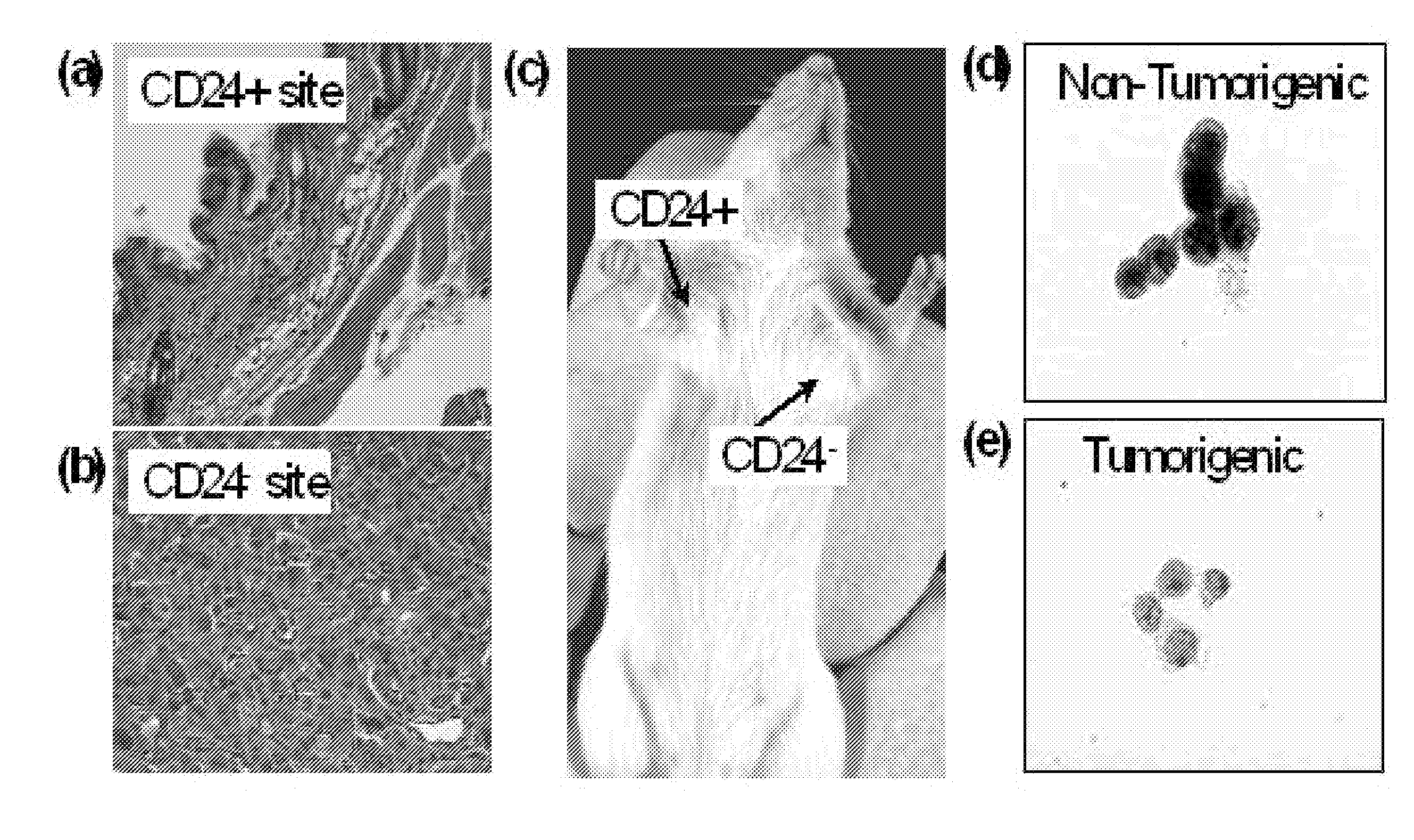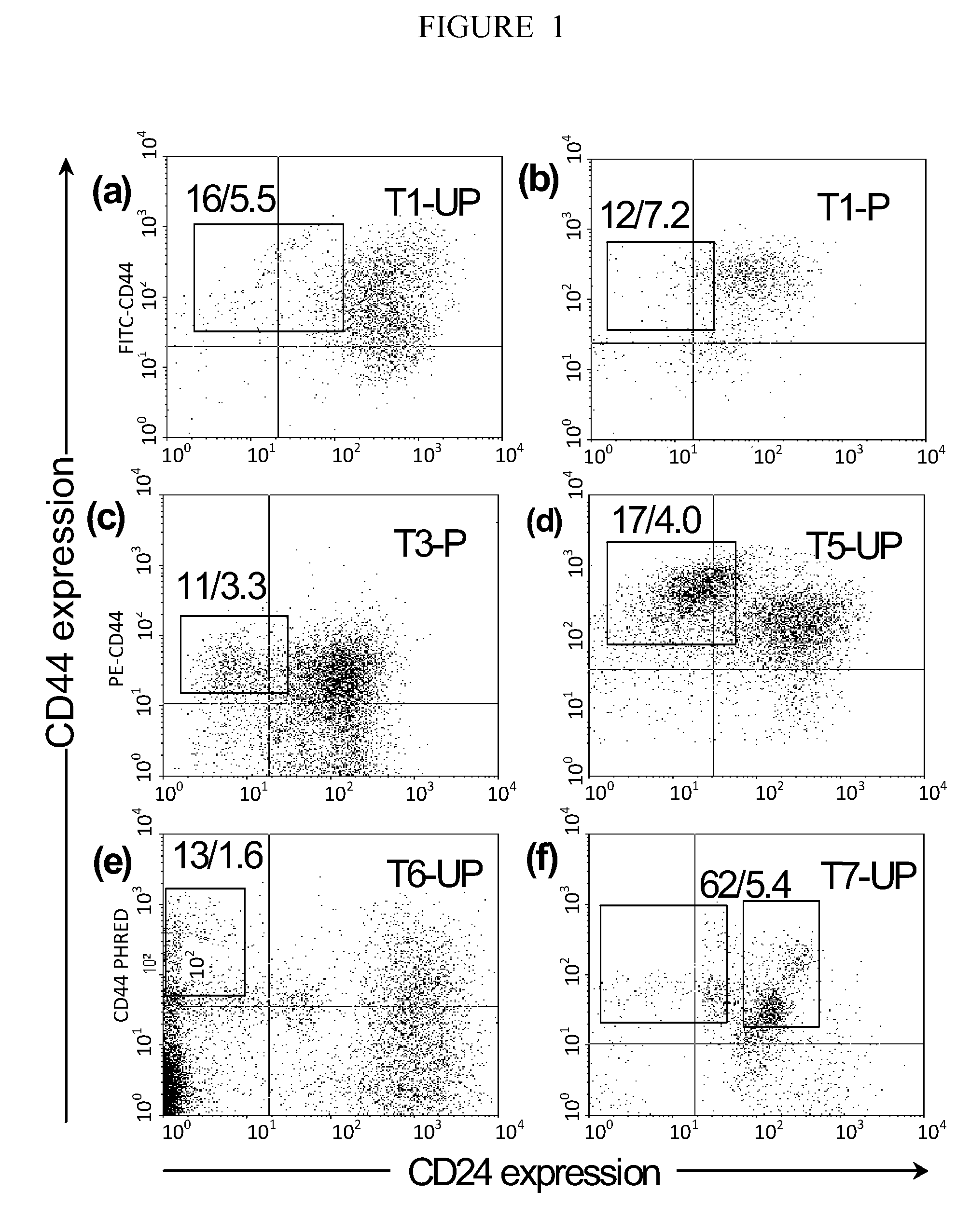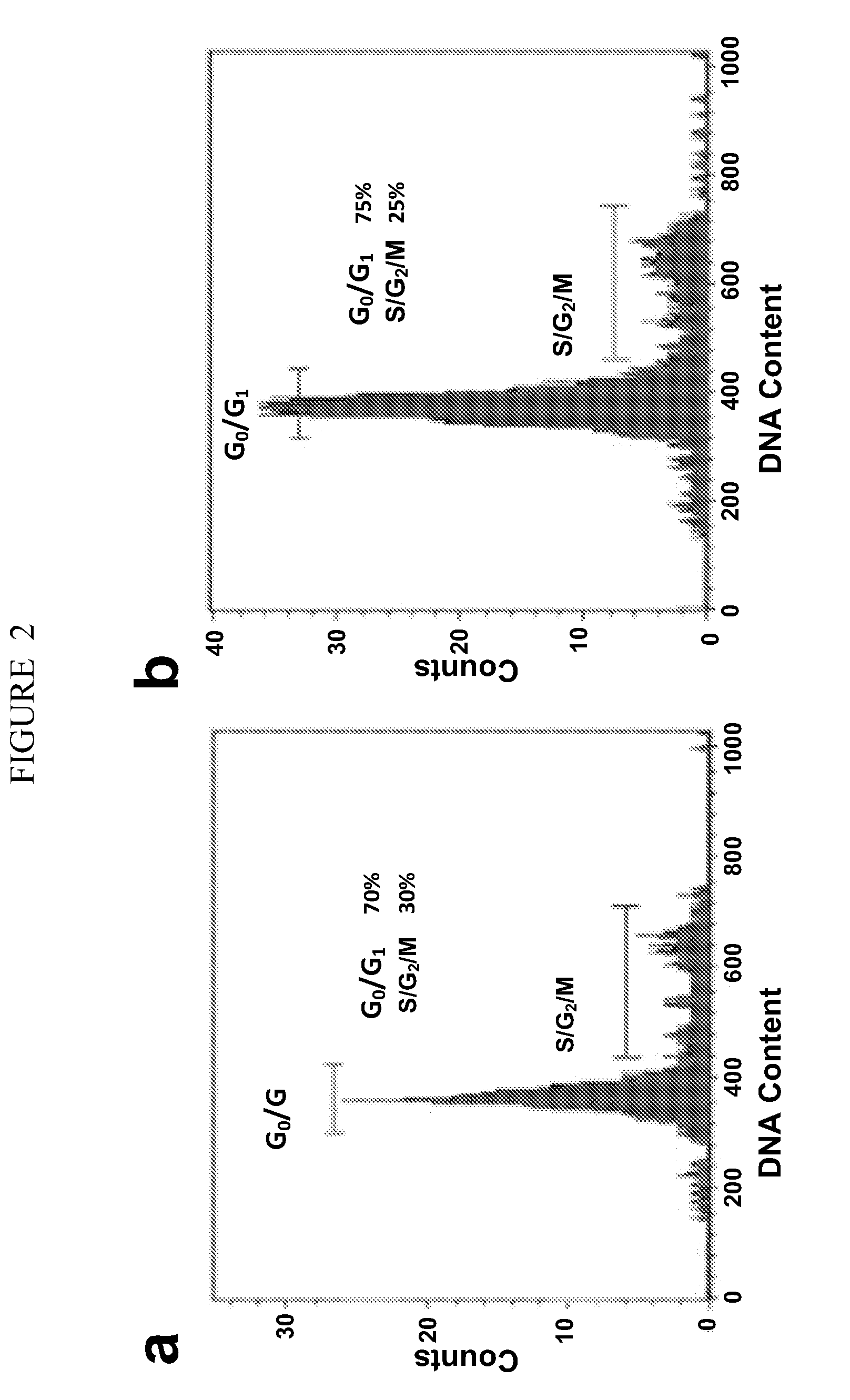Compositions and methods for treating and diagnosing cancer
a cancer and composition technology, applied in the field of compositions and methods for treating, characterizing and diagnosing cancer, can solve the problems of increasing the quality of life, prolonging the disease-free state and overall survival rate, and reducing the amount of labeled a bound
- Summary
- Abstract
- Description
- Claims
- Application Information
AI Technical Summary
Benefits of technology
Problems solved by technology
Method used
Image
Examples
example 1
Establishing and Analyzing a Solid Tumor Cell Xenograft Model
[0252]This examples describes the generation of tumors in mice using human solid tumor cells from humans and the analysis of these tumors.
[0253]Materials and Methods
[0254]Mouse preparation. 8-week old female NOD-SCID mice were anesthetized by an intra-peritoneal injection of 0.2 ml Ketamine / Xylazine (300 mg Ketamine combined with 20 mg Xylazine in a 4 ml volume. 0.02 ml of the solution was used per 20 g mouse). Dilution to 200 μl was done using HBSS. Mice were then treated with VP-16 (etoposide) via an intra-peritoneal injection (30 mg etoposide dose per 1 kg mouse, diluted in serum-free HBSS for a final injection volume of 200 μl). At the same time, estrogen pellets were placed subcutaneously on the back of the mouse's neck using a trocar. All tumor injections / implants were done 5 days after this procedure. In the following procedures, mice were anesthetized as described above.
[0255]Primary tumor specimen implantations. F...
example 2
Characterizing the Wnt / β-catenin Pathway in Human Breast Cancer Tumors
[0289]This examples describes how one could characterize the Wnt / β-catenin pathway in human breast cancer tumors using the xenograft model described above. The Wnt / β-catenin pathway plays a role in the proliferation and self-renewal of normal stem cells. Although a significant percentage of human breast cancers appear to have constitutive activation of this critical pathway, unlike colon cancer, it has not been definitively established what role this pathway plays in the pathology of this disease in humans84-89. The xenograft model described above may be used to characterize the biological consequences of this pathway in human breast cancer tumors. These tests are done using cancer cells directly after removal from patients and early passage xenograft tumors.
[0290]The function of the Wnt / frizzled / β-catenin signaling pathway in multiple patients' tumors. Rationale: Almost 90% of colon cancers contain mutations that...
example 3
Localization of β-catenin in Tumorigenic Cells
[0326]In normal hematopoietic cells, nuclear β-catenin is found only in the stem cell compartment. Reya et al. further demonstrate that β-catenin signaling is necessary for normal stem cells to self-renew. A recently completed analysis of the subcellular localization of β-catenin in tumorigenic and non-tumorigenic tumor 1 breast cancer cells further supports this notion. Normally, the subcellular distribution of β-catenin is heterogeneous in cancer cells. In some cells, the protein is located primarily in the outer membrane, while in others primarily in the nucleus. The subcellular distribution of the protein differs in the tumorigenic and non-tumorigenic cancer cells. The β-catenin is primarily located in the cytoplasm of the non-tumorigenic cancer cells, while it is primarily in the nucleus of the tumorigenic cells (FIG. 8). Since upon activation by a Wnt signal, β-catenin translocates from the cell membrane to the nucleus to activate ...
PUM
| Property | Measurement | Unit |
|---|---|---|
| compositions | aaaaa | aaaaa |
Abstract
Description
Claims
Application Information
 Login to View More
Login to View More - R&D
- Intellectual Property
- Life Sciences
- Materials
- Tech Scout
- Unparalleled Data Quality
- Higher Quality Content
- 60% Fewer Hallucinations
Browse by: Latest US Patents, China's latest patents, Technical Efficacy Thesaurus, Application Domain, Technology Topic, Popular Technical Reports.
© 2025 PatSnap. All rights reserved.Legal|Privacy policy|Modern Slavery Act Transparency Statement|Sitemap|About US| Contact US: help@patsnap.com



